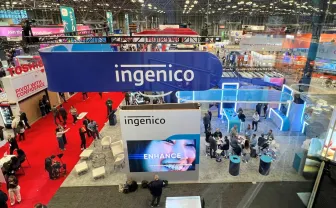It’s Time to Transition to a Modern Retail Payment Solution
Listen to this article

Delighting retail consumers with personalized, friction-free experiences is key to business growth, and the right retail payment solutions are essential to delivering those experiences. However, each retailer must tell its own brand story and find ways to stand out in the market with unique journeys and services. This creates a dilemma for retailers and for their partners who provide them with the technology to run their businesses. The competitive landscape, technology, and consumer behaviors and preferences evolve rapidly. A rip-and-replace approach isn’t practical for keeping up with that change, but a retail payment solution that’s adaptable can help retailers stay competitive in a constantly evolving market.
For retailers who have traditionally relied on their point-of-sale (POS) software or retail management system as the core of their operations, using a payments platform for added functionality may be a new idea.
However, payments are at the crux of commerce and payments data can help merchants track consumer activity. Data insights also help merchants personalize interactions and make informed decisions about their businesses.
The value that merchants gain from data makes transitioning to a modern retail payment solution a highly beneficial move. This includes selecting the right combination of software and hardware - such as Ingenico’s Retail PIN Pads - to support secure, efficient, and customer-friendly in-store transactions.
The Best Retail Payment Solution Design
Traditionally, merchants have relied on integrations between disparate systems to have all of the point of sale, payments, and business management capabilities. However, moving to a retail solution built on an Android-based payment platform gives merchants a flexible, future-proof retail framework to run their businesses. The retail solution should be designed for:
- Enhanced Payment Experiences
A retail payments platform allow merchants to accept all types of payment methods, from traditional credit and debit to contactless payments. It also gives retailers the option to expand terminal functionality to accept growing alternative payments like money transfers, which are predicted to total USD 78.12 billion by 2029, and buy now, pay later (BNPL), on pace to reach USD 911.8 billion by 2030. Furthermore, merchants can enhance payment experiences by adding features such as loyalty engagement, currency conversion, and customer surveys.
- Powering Business Applications
A modern retail payment solution allows merchants to run business software from their Android terminals, using that computing power to run applications like inventory management solutions, loyalty rewards programs, and even POS software. This can provide additional operational efficiency and lower total cost of ownership for a merchant.
- Future-Proof Agility
A prime advantage of a platform approach to retail payment solutions is its flexibility. Android gives software developers an easier path to innovation than when working with proprietary systems. They can take new features or solutions to market more quickly to adapt to new consumer demands for competitive pressures. The platform can even support payment solutions that don’t require a payment terminal, like software-based SoftPOS for tap-to-pay payments on the mobile devices that retailers use in other areas of their operations. A retail payment solution provider that builds a robust partner ecosystem can give partners the ability to offer these innovations to merchants - without ISVs investing time and resources into development.
- Advanced Management Capabilities
A comprehensive platform will include the ability to manage payment solutions easily and lower the cost of managing the merchant’s estate. For example, it can allow users to request service directly from payment devices, monitor devices across the estate, and push updates to all or a specific group of devices. In addition, a management platform can enable better asset tracking and provide enhanced security and the ability for merchants to more easily comply with Payment Card Industry (PCI) standards.
Overall, a retail payment solution based on an innovative Android platform gives merchants functionality and agility today and tomorrow, and all with only one integration to manage.
Are you ready to modernize your retail payments with Ingenico? Explore our Retail Signals white paper to learn more about the key forces shaping the future of commerce in retail.
The New World of Commerce
With next-generation retail payment solutions, merchants can craft unique and customer-pleasing shopping experiences. “Checkout” can evolve from paying at a counter after standing in line to paying at any point of engagement throughout the store. Those interactions can also become more tailored and personalized, helping merchants deliver experiences that build loyalty.
An advanced retail payment solution can give merchants a foundation for innovation and the agility to stay on the leading edge of their markets. To learn more about Ingenico’s platform approach to retail payment solutions, contact our experts today.










